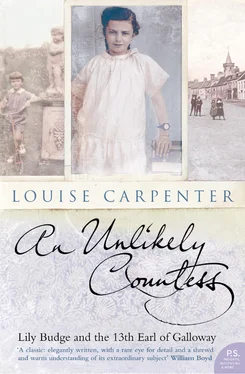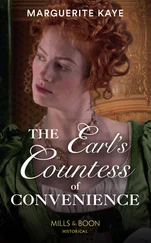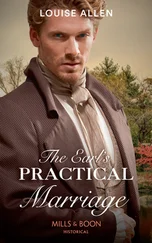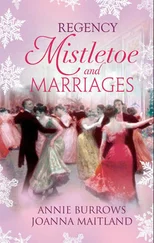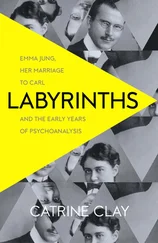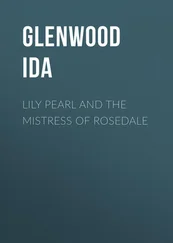Lily was a bright child, but she had no encouragement at home, not even from Papa. Sis only valued instruction of the domestic kind. Her dream for her daughters extended to them gaining good positions in domestic service, which would, in turn, bring adequate and fair reward. ‘Mother thought it right and proper that training for anything should come from the landed gentry,’ Lily later lamented. Any attempts at studying at home were met with out-and-out resistance, which meant that Lily often left North Street in her immaculate pinafore with red eyes and half-finished homework. Given Papa’s regrets about his own undeveloped intellect, his inertia when it came to the minds of his daughters is less easy to explain. But he was a weak man and his position – or lack of it – is probably more a sign of how much he feared to contradict his wife than a belief that girls did not deserve the benefits of book work.
Aside from the wonderful Hannah, who, Lily later wrote, ‘From the day I crawled into her house as an infant … had taken me to her heart’, Lily (by now on the verge of adolescence) had one best friend. She was a bold, straight-talking girl called Alice Brockie, who arrived at Duns Primary tinged with the smell of the barnyard on account of living on a smallholding in the outlying reaches of Duns. Alice came from a good home. The family had once been successful farmers from Selkirk and her mother had employed a maid, but the post-war depression had forced her grandfather into bankruptcy and he had eventually sold the family business. Moving to Duns as a qualified specialist in Border Leicester sheep was a step down, to be sure, and it was said that Mrs Brockie was having trouble adapting. She was known as the Duchess, for her airs and graces, and it had also been noted that Alice’s sister, Bunty, walked about with a pet piglet under her armpit.
When Alice first arrived at the school, aged eleven, it was Lily who had offered friendship. It was typical of her, even then, to be drawn to someone down on her luck and apparently in need of help. Alice Brockie would never forget this first act of kindness. Lily’s friendship with her, which was to last a lifetime, was cemented by a shared dream of the future. The two girls, in their blue pinafores and bunches, would sit in the girls’ playground and plot their escape. ‘I am not going to end up a poor servant girl skivvying after other people! I will not! I will not!’ Alice would cry passionately.
They fantasised endlessly about leaving Duns. Mr Brockie might have been suffering the legacy of his father’s financial ruin, but he knew the work of Dickens, and every morning he would test Alice’s arithmetic as she sat on the side of the bath watching him shave his whiskers. He had stimulated Alice’s ambition and Lily found it to be contagious. Alice wanted to leave Duns, to leave Scotland, travel the world, and perhaps even become a doctor. Lily could not be so precise – it was thrilling to even think of a life beyond the town square, let alone decide what to do with it. All she knew for certain was that she wanted more than what Sis had in mind.
In 1928, when Lily was twelve, she began part-time work in a baker’s shop. Lily’s days now began at 7 a.m. with the collection of morning rolls to be delivered in a large wicker basket before school. The weekends were the busiest. Orders doubled and the Saturday bread run started at 6.30 a.m. The bakery paid Lily three shillings and sixpence a week, as well as a large bag of cakes and a bag of sweets, all of which she handed over to Sis, who then handed back nine pence, three of which she called ‘pocket money’. Lily, schooled in her mother’s impressive housekeeping, saved the sixpence ‘pay’. After returning home to North Street for breakfast, on Saturdays Sis would put Lily and Rose to work. The bedroom was turned out and the stairs and lobby scrubbed. When ‘the chores in the house were done to my Mother’s satisfaction’, the girls were given a wheelbarrow and sent to the sawmill over a mile away to collect wood. They made the journey twice, first for thin logs, and then for the fat ones Sis used for cooking mutton stew in her cauldron.
All chores, including cooking Sunday lunch (always stew, usually mutton but sometimes rabbit if Sis was feeling generous) had to be finished by Saturday evening. Sis refused to work on the Sabbath. She was, in Lily’s words, ‘a keen church goer and she set the pattern’. Setting the pattern included herding her girls to Bible class and then afternoon Sunday school, where Lily became a teacher, and badgering Papa to convert from the Church of Scotland to the Church of England. He complied, for a quiet life, but even the children noticed their father was not quite as ardent in his beliefs as one might expect of a church warden. ‘He went along with it all the same,’ Lily later wrote, a succinct epitaph for Papa’s general attitude to life.
The Millers worshipped at Christ Church, an Episcopalian church dating back to 1857. It is still there today, sitting high on Teindhill Green, which snakes across the top of Duns. It is surrounded on all sides by its graveyard and inside are the usual memorials to those singled out for special attention. Lily, in her best dress, became familiar with these as she sat in the third pew from the back where she was squashed in next to Papa, Sis, Etta, and Rose. The front pews were filled by the Berwickshire gentry, the descendants of those remembered on the walls: Mr and Mrs Hay of Duns Castle, Papa’s old employers; Captain Tippins; Lady Miller from Manderston and the incumbents of Charterhall. The congregation encompassed the very rich and the very poor, so Sunday service gave Lily her first taste of the class divide. ‘They have such loud voices,’ she would whisper to Papa. ‘Why do they shout at each other like that?’
For the other six days of the week, the gentry, apart from the Hays, remained hidden on their estates or in London. Their children were educated either at boarding school or at home. Errands were run by staff. Occasionally a car would purr through the town and the men would tip their hats if a lady were inside, but these sightings were akin to spotting a rare bird. No sooner had they come into view than they were gone. Their homes ran along banks of the River Tweed, known locally as ‘Millionaire’s Row’. Lily, like all the other ordinary girls in Duns, was not destined to breathe such air. The closest she would come to this life of privilege was waiting at the tables, clearing the hearths, and making the guest beds, and that, according to Sis, would do quite nicely.
If Lily had dodged thinking about the grim reality of her destiny, preferring instead to dream with Alice, in 1930 she was given no choice. Turning fourteen marked the official end of her education. Sis’s project was to send her into service as soon as possible and she enlisted Etta to keep an ear to the ground for a suitable position – nothing too grand, but enough to put Lily on the first rung of the domestic service ladder (the last rung being a position with a titled family). When the day came for her to leave school, her sadness at waving goodbye to Alice and Mr Thomson was made bearable only by the fact that Sis had not yet found her a position and that she would not be leaving North Street. It was never Sis’s plan to have Lily moping about at home, so when the baker for whom Lily worked offered her a job minding his children, three-year-old Olive and five-month-old Moira, Sis was happy to let her do it. This was a temporary measure until something ‘proper’ came up.
Caring for the baker’s small children brought Lily much pleasure. She took them for long walks around town, Olive toddling along by her side and Moira peering inquisitively from the pram. Lily loved tidying and rearranging the nursery. This routine continued for a few months and Lily was ‘thrilled’ at the way things had turned out. ‘However,’ she was to recall years later, ‘mother had different ideas.’
Читать дальше
